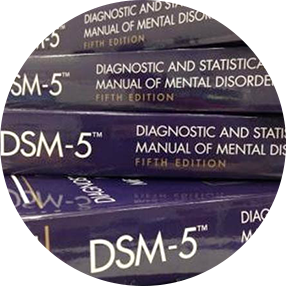Schizotypal personality disorder
People with schizotypal personality disorder are often described as odd or eccentric and usually have few, if any, close relationships. They generally don’t understand how relationships form or the impact of their behavior on others. They may also misinterpret others’ motivations and behaviors and develop significant distrust of others.
These problems may lead to severe anxiety and a tendency to avoid social situations, as the person with schizotypal personality disorder tends to hold peculiar beliefs and may have difficulty with responding appropriately to social cues.
Schizotypal personality disorder typically is diagnosed in early adulthood and is likely to endure across the lifespan, though treatment, such as medications and therapy, can improve symptoms.
Symptoms
Schizotypal personality disorder typically includes five or more of these signs and symptoms:
- Being a loner and lacking close friends outside of the immediate family
- Flat emotions or limited or inappropriate emotional responses
- Persistent and excessive social anxiety
- Incorrect interpretation of events, such as a feeling that something that is actually harmless or inoffensive has a direct personal meaning
- Peculiar, eccentric or unusual thinking, beliefs or mannerisms
- Suspicious or paranoid thoughts and constant doubts about the loyalty of others
- Belief in special powers, such as mental telepathy or superstitions
- Unusual perceptions, such as sensing an absent person’s presence or having illusions
- Dressing in peculiar ways, such as appearing unkempt or wearing oddly matched clothes
- Peculiar style of speech, such as vague or unusual patterns of speaking, or rambling oddly during conversations
Signs and symptoms of schizotypal personality disorder, such as increased interest in solitary activities or a high level of social anxiety, may be seen in the teen years. The child may be an underperformer in school or appear socially out of step with peers, which may result in teasing or bullying.
Schizotypal personality disorder vs. schizophrenia
Schizotypal personality disorder can easily be confused with schizophrenia, a severe mental illness in which people lose contact with reality (psychosis). While people with schizotypal personality disorder may experience brief psychotic episodes with delusions or hallucinations, the episodes are not as frequent, prolonged or intense as in schizophrenia.
Another key distinction is that people with schizotypal personality disorder usually can be made aware of the difference between their distorted ideas and reality. Those with schizophrenia generally can’t be swayed away from their delusions.
Despite the differences, people with schizotypal personality disorder can benefit from treatments similar to those used for schizophrenia. Schizotypal personality disorder is sometimes considered to be on a spectrum with schizophrenia, with schizotypal personality disorder viewed as less severe.

